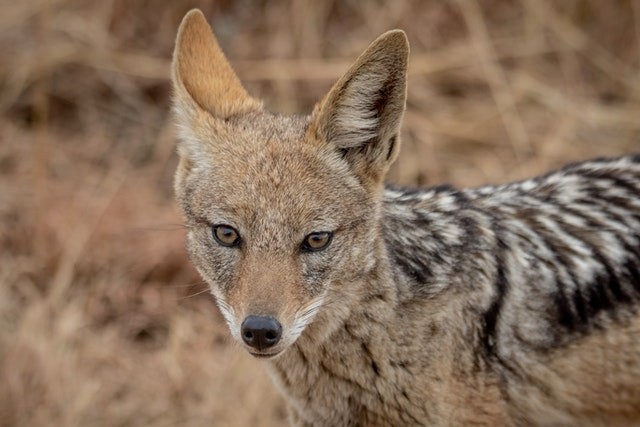According to veterinarians, Andrea Athie was shocked when she discovered that the homeless dog she rescued following a hit and run incident was a wild coyote.
A report from Mirror said that the woman was driving in Ciudad Victoria in Mexico when the vehicle in front of her hit an animal and sped off without stopping to check on it.
The animal was injured in a hit and run https://t.co/BtIOWkKWIj
— Mirror Weird News (@MirrorWeirdNews) March 30, 2022
With the desire to help the animal, Athie stopped her car, cot out, and tried to calm it, which she thought was a stray dog judging on its appearance.
Unable to lift what she thought was a dog into her car on her own, the woman called her friends for help. Fortunately, two of her friends came to her rescue, and she was able to get the injured creature to a veterinarian nearby.
ALSO READ : 3 Ways to Help Pets Overcome Separation Anxiety

Unaggressive Pancho
After arriving at the veterinarians' clinic, Athie found out that she had been cuddling, not with a malnourished dog but with a wild coyote.
Posting a picture of the rescued animal on Twitter, the woman's sister wrote, "My sister picked up a coyote," as she thought it was a run-over dog and brought him to the vet.
While coyotes are famous for attacking humans and their pets, it is unusual for them to attack when not provoked, and they seldom cause severe injuries. Athie, who called the coyote Pancho said when she saw the situation, she stopped and got out of her car to help without knowing it was a coyote.
The coyote she found was never aggressive, said Athie. He was letting himself be caressed, although it's common knowledge that it was a wild animal and he could not live with humans.
Dogs vs. Coyotes
As specified in the Difference Between website, both dogs and coyotes belong to the dog family. However, while the animal species are quite different, they share several interesting characteristics, such as their appearance and behavior.
Moreover, coyotes are known for their scientific name, "Canis latrans," which means barking dog. On the other hand, dogs are known for their scientific name, "Canis lupus familiaris."
Similar to coyotes, dogs have a close similarity to wolves. On the other hand, most dogs are kept as domestic dogs, either for security purposes as guard animals to sniff for or ward off threats or pets. They are used as well, for companionship, herding, and hunting. Unlike coyotes, dogs are considered very versatile animals.
Danger Coyotes Bring to Humans
Coyote attacks may be rare on humans, but they do happen, not to mention turning more frequently. According to North American Nature, from 1976 to 2006, there were at least 160 coyote attacks on both adults and children.
For a better understanding of the increase in aggression, there were as many coyote attacks on humans in the five years from 1998 to 2003 as reported and recorded in the previous nine years from 1988 to 1997.
Because of the small sizes of these dog species, they rarely cause severe injuries to adults compared to most adult humans. Coyotes, in general, are not hunting in packs large enough to injure a completely grown adult severely.
Unresponsive to Treatment
After going through an X-ray procedure, it was found that Pancho sustained two injuries to his cervicals as a result of the crash, leaving him unable to move his hind legs or empty his bowels.
Athie said that Pancho's procedure was through a veterinarian, and it was professionally done. Unfortunately, she continued, "He could no longer continue fighting with us."
The coyote was unresponsive to treatment. Everything was done in the most humane possible, Athie added. In that final moment, she recalled, she looked at the creature and wanted him to have the best possible quality of life and never suffer.
Related information about dogs vs. coyotes is shown on Donna H. Charles' YouTube video below:
RELATED ARTICLES : Dog Breeders Find Hope in Newly Developed Genetic Test to Lessen the Risk of Congenital Idiopathic Megaesophagus in Puppies
Check out more news and information on Animals in Science Times.
© 2026 ScienceTimes.com All rights reserved. Do not reproduce without permission. The window to the world of Science Times.












